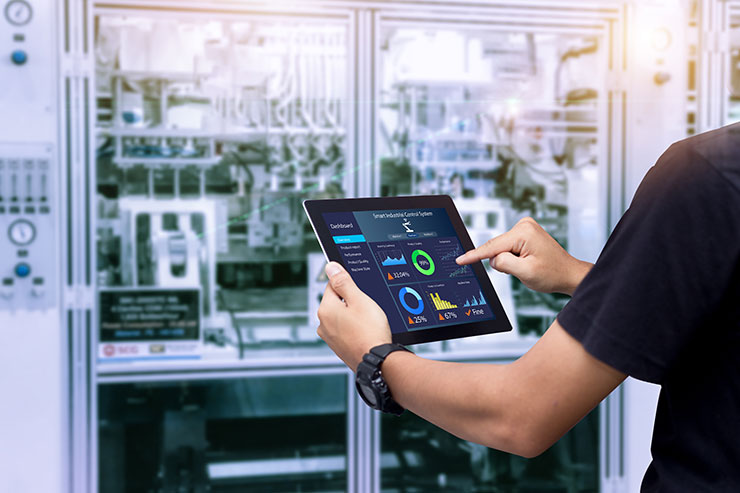
There are countless concepts and terminologies related to IIoT and Industry 4.0, however the following 12 fundamental terms and expressions should be understood before deciding whether to invest in Industry 4.0 solutions for your company:
- Enterprise Resource Planning (ERP): Tools for managing business processes that can be used to the management of information throughout a company.
- IoT stands for “Internet of Things,” a term that describes links between actual physical objects, such as machinery or sensors, and the Internet.
- IIoT: The term “IIoT” refers to the connections between people, data, and machines as they apply to manufacturing. IIoT is an acronym for the Industrial Internet of Things.
- Big data is a term used to describe vast collections of structured or unstructured data that can be gathered, saved, arranged, and analysed to identify patterns, trends, relationships, and opportunities.
- Artificial intelligence (AI) is the term used to describe a computer’s capacity to carry out operations and reach choices that, in the past, would have required some degree of human intelligence.
- M2M stands for machine-to-machine and describes communication that takes place over wired or wireless networks between two different machines.

Cyber-physical systems (CPS): A manufacturing environment supported by Industry 4.0 that delivers real-time data gathering, analysis, and transparency across every facet of a manufacturing process is referred to as a cyber-physical system (CPS), also referred to as cyber manufacturing.
- Digitization: The process of gathering and transforming various sorts of information into a digital format is referred to as digitization.
- Smart factory: A smart factory is one that invests in and makes use of Industry 4.0 methods, technologies, and solutions.
- Machine learning: This term describes how computers can use artificial intelligence to learn and develop on their own, without being explicitly instructed or programmed to do so.
- Cloud computing: This is the method of storing, managing, and processing data utilizing a network of connected remote servers that are hosted on the Internet.
- Real-time data processing: This term describes how computer systems and devices may continually and automatically process data in order to produce results and insights that are immediate or close to immediate.
- Ecosystem: In the context of manufacturing, an ecosystem is the possible interconnectedness of your entire business, including supply chain management, customer connections, financial planning, inventory, and manufacturing execution.







